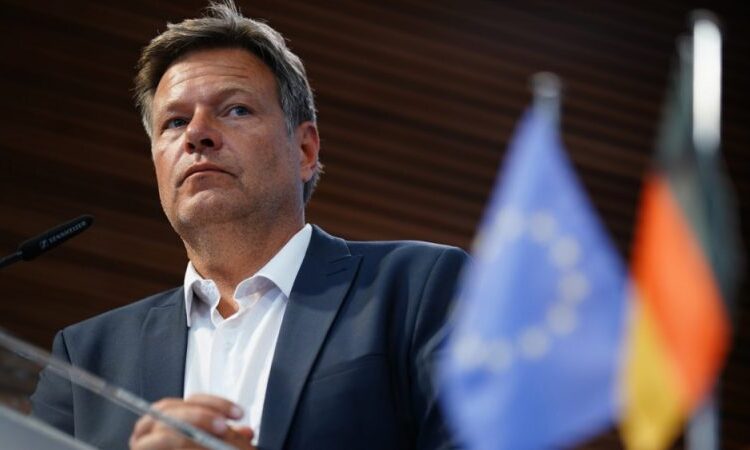
German Economy Minister Robert Habeck (Greens) has defended the country’s billion-euro investments into green steel plants, saying it was needed to avoid a breakdown of whole regions’ industries and secure supply of steel at times of geopolitical uncertainty.
Over the course of the last year, Germany won the go-ahead from Brussels for a total of €7 billion in support for its steel industry, including in industrial hubs such as the west German state of Saarland and the Ruhr area.
The move, however, has been criticised by economists, who pointed to the need to restructure sectors that would have to rely on government-subsidised electricity because of comparably higher renewable energy prices than elsewhere in the world, and called on the government to “embrace” a partial relocation of energy-intensive production.
In a podcast interview by WELT published on Thursday (16 May), Habeck defended the government’s strategy, arguing that steel plants would ultimately stabilise the democracy of the country by warding off risks of populist parties gaining consensus because of economic discontent.
Without steel production in Germany, whole regions, such as the small state of Saarland close to the French border, could in fact “lose key industries and thus entire clusters of value creation,” Habeck warned.
Then, he said, “we have a double problem, namely a democratic one – entire regions will once again relive the post-reunification story, with a bad outcome for the democratic consensus – and we have a resilience problem”.
After German reunification in 1990, East Germany has experienced harsh deindustrialisation as parts of inefficient industrial plants of the former German Democratic Republic (GDR) were dismantled, leading to as many as 1.5 million people losing their jobs.
Today, the country’s eastern regions are a stronghold of the far-right AfD party – which could win regional elections in three East German federal states later this year – while differences between the former East and West in the level of income and wealth persist.
Habeck’s analysis of “cluster effects”, which would see entire regions deindustrialise if steel cannot be sourced locally, is, however, disputed. Karl Hauesgen, head of German machinery maker association VDMA said last year that “whether I buy […] steel in Northern Europe, Central Europe or Southern Europe is completely irrelevant”.
On resilience, Habeck said “the German economy, the European economy, needs a basic stock of production skills because it needs a certain robustness in a world that has gone wild”.
“Good old globalisation […] is badly battered at the moment,” he added.
The German minister’s statements echo arguments by EU steel industry association Eurofer.
While acknowledging that importing green iron – an energy-intensive intermediate product used to produce climate-neutral steel – would be cheaper than producing it in Europe, Eurofer’s secretary general Axel Eggert told Hydrogen Insight on Monday that the move would be a “mistake”.
“We are also talking about the resilience and strategic autonomy of the European Union for many reasons,” Eggert said, citing defence production as an example.
[Edited by Anna Brunetti/Zoran Radosavljevic]







